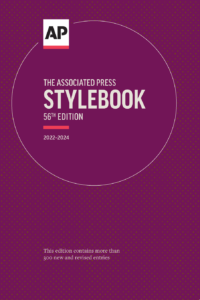“Power is in tearing human minds to pieces and putting them together again in new shapes of your own choosing.” –George Orwell
It has been a pathetic spectacle to witness the ransacking of our federal government under the guise of serving the American public. Extra-legal acts of sabotage to agencies like the NIH have come with the explicit endorsement of the GOP and implicit acceptance of a somnolent public. We have to wonder what kind of country actually wants the self-inflicted wounds of wholesale firings and dismembered agencies. Few democracies have seemed so placid in the face of such self-destruction.
It tends to be the smaller declarations from the White House that capture its sloppy logic and daily rhetorical mayhem.
Consider the renaming of the Gulf of Mexico. The Gulf is shared by three nations. Though the mental fog may sometimes lift from his thinking, Donald Trump was logically out of his lane to overturn tradition and unilaterally assign a new name. Mexico and Cuba rightly have other ideas.
 And for keeping the same geographical label, the Associated Press was suddenly barred from full access to the White House.
And for keeping the same geographical label, the Associated Press was suddenly barred from full access to the White House.
In overturning an uncontested place name Trump sought to turn a rhetorical whim into reality. Like his absurd palaver ignoring the sovereign states of Canada and Greenland, he squandered his authority to deny what others can clearly see. Such denial tries to sell a fantasy as the truth. Only small children and politicians engorged with a sense of power would try this kind of sleight-of-hand.
And so when CNN’s Kaitlan Collins put the question to White House Press Secretary Karoline Leavitt, her response was stunning in its audacity. The logic of Leavitt’s non-answer would bring no credit to even a child. She tried to sell the renaming as settled fact, and the traditional name a “lie.” “I was upfront on day one if we feel that there are lies being pushed by outlets in this room, we are going to hold those lies accountable,” she noted. And with a straight face she continued with a perfect example of doublespeak: “It is a fact that the body of water off the coast of Louisiana is called the Gulf of America, and I am not sure why news outlets don’t want to call it that, but that is what it is. The secretary of interior has made that the official designation, and geographical identification name server, and Apple has recognized that, Google has recognized that, pretty much every outlet in this room has recognized that body of water as the Gulf of America, and it’s very important to the administration that we get that right.”

The circular logic here tries to sell this weeks old fabrication as the status quo, presumably while the rest of us will avert our eyes to avoid noticing that Mexico itself shares over 1700 miles of shoreline along the Gulf. This kind of binary thinking is Alice in Wonderland kind of stuff, spoken—amazingly—to a packed pressroom disappointingly silent except for Ms. Collins.
Ditto for the new administration’s insistence in the same press conference that gender is a simple two-tailed concept. In attacking efforts to deal with the dynamic nature of gender identity, Leavitt wanted to hold to a view of language that admits no well-documented subtleties. Apparently the Trump administration is ready to declare “that there are only two sexes, male and female. And we have directed all federal agencies to comply with that policy.”
Again, Leavitt can say this, but even in the precincts of the White House her truth is a forgery. She needs to get out more. It is settled science that gender is fluid, allowing no one-size-fits-all dichotomy. As the University of Iowa’s Maurine Neiman has noted, scientists of human reproduction “are in wide agreement that biological sex in humans as well as the rest of life on earth is much more complicated than a simple binary.” In fact, according to the Gallup Organization, nearly one in ten Americans identify as L.G.B.T.Q. Poor Ms. Leavitt wondered off into the weeds again to presume that it was her place to deny firm scientific proof. He attempt to usurp the prerogative of Americans to shape and affirm their own identity would have been wide of the mark even in 1894.
![]()


 As well, storied brands of old audio and photo equipment from the 70s and 80s have also become a thing. Used audio stores could be lonely places for a few nostalgic old men. Now, some stores can hardly keep up with the demand for used audio amplifiers, some made over 50 years ago. A restored off-the shelf Kenwood Amplifier from the early 70s can sell for as much as $4,000.
As well, storied brands of old audio and photo equipment from the 70s and 80s have also become a thing. Used audio stores could be lonely places for a few nostalgic old men. Now, some stores can hardly keep up with the demand for used audio amplifiers, some made over 50 years ago. A restored off-the shelf Kenwood Amplifier from the early 70s can sell for as much as $4,000.